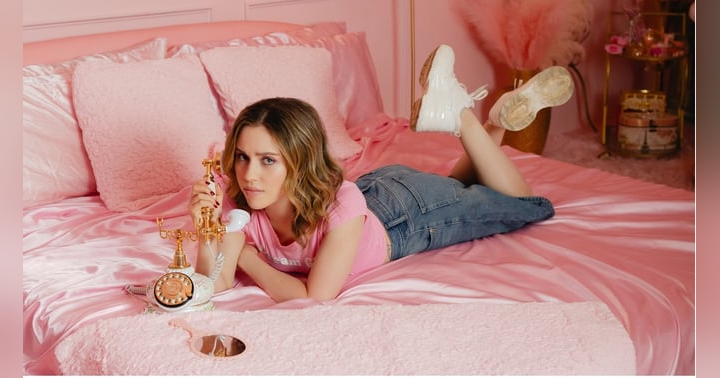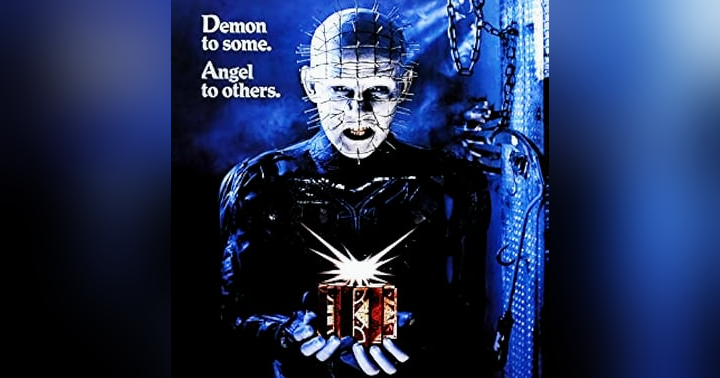Between Reality and Illusion: Interview with RRUCCULLA

Izaskun González aka RRUCCULLA is an artist in the truest sense of the word. Starting out as a drummer, she taught herself music production, sound design and mixing, and today she not only creates highly original compositions, blending abstract beats, lively sounds, pop-infused melodies, and jazz influenced experimentalism, she also designs intricate and equally original visuals for her shows. In addition to all the above, she makes her own drawings, some of which play an indispensable part as her album artworks, hand-embroidered garments, music videos, sculptures and more.
Her career skyrocketed after winning Spain's national competition Villa de Bilbao in 2016. It wasn't long before magazines like Pitchfork started writing about her and she was already invited to perform at major festivals like Sonar, Primavera, Ars Electronica and SXSW.
On September 7, her new album Zeru Freq. was released, and I was lucky to speak with her a few weeks later:
Arina Korenyu: I read your explanation that ‘Zeru-a’ in the Basque language means ‘sky’. When I scrolled through your Instagram profile a bit, I found your post saying how you took pictures of the sky every day during the COVID lockdown in 2020. I also saw that the drawing that is now part of the album cover was made during that time as well. Is it safe to say that you began thinking on this album already three years ago?
RRUCCULLA: Yes, I started to think about it in 2020. I went through a phase that I didn't want to write music anymore. That's why I began to make drawings. It wasn't like a creative block, I still wanted to create something, but I just couldn’t make music. Later, I began to design sounds based on those drawings.
AK: It's inevitable that an album inspired by the sky sounds quite natural. You use a lot of field recordings and more acoustic instruments here. From my perspective even the electronic elements in this album have a very organic quality. That makes it quite different from your previous works like Rincones Seguros and Shush. What do you think encouraged such a change?
R: Well, I was feeling kind of different when I was making this album. It was another phase of my life, and I think that the music that I was listening at that time was very different as well. That affected this album, of course. For example, the other day I wrote a thread in Twitter explaining which albums inspired Zeru Freq. The majority consist of instrumental classical pieces, along with minimal contemporary music and, naturally, Broadway tunes.
AK: It's interesting because I was about to ask if you were listening to lots of classical music while writing Zeru Freq.When I listened to it, I definitely had this impression. For example, the beginning of the album, track ‘Sarrera: Affinacion de Color’ reminded me a classical overture, and the way how synth voices respond to each other in ‘Zeru Freq.’ reminded me a lot of fugues.
R: That's funny. Yeah, I was trying to create the symphonic kind of structure and the illusion of symphonic sounds.
AK: In terms of production, did you use any new techniques or equipment to achieve this unique sonic experience?
R: Yeah, in the previous albums I was just using Ableton and producing in the box. Here I recorded real drums and more organic sounds like, percussion, played by me. I was obsessed with the wooden and natural sounds that we have around us and bored with the typical electronic sounds that you hear in most albums these days. I also wanted to be closer to the nature and normal lifestyle that we have here in the Basque country.
I tried to make that wood flute sound with Operator or Wavetable stock synthesizers in Ableton or external synth Serum and it was demanding to achieve very specific frequency that flute has. Each sound in the world corresponds to a particular frequency. That's the concept behind the album and that’s why it is named Zeru Freq. As I said, I was really obsessed trying to make those synthetic sounds real. I spent around five weeks just trying to make one flute sound for ‘Arquitectura Capilar’ and I couldn’t say if it sounded real enough. It was problematic for my brain to be certain because I knew the process behind making it. Therefore, I made a test with my friends and family, asking them to listen and tell me how it sounds for them. If they said flutes or wind instruments or something like that, that was the time when I was like, okay, I made it now.
AK: Interesting because I was sure you recorded some real wind instruments, but all of them were designed, is that correct?
R: Yeah, that's the fun part of it because sometimes it sounds like real instrument and other times if you play another note with the midi keyboard, it sounds completely abstract. That's the game I wanted to play with this album when you don't know what's real and what's fictitious, making the illusion to the people that they are listening to something that they recognize in the real world. The opening of the album, where all sound design has been made with synths in Serum, was meant to create an illusion of overture, played by a classical orchestra.
AK: Are there any particular tracks on this album that hold personal significance to you? If so, why?
R: ‘Draw Us Before We Fade’ and the title track ‘Zeru Freq.’ The last track ‘¿Punto Final?’ was tricky for me because I really wanted to sound real. Normally I listen to a lot of vocal jazz, and I envy a lot those people because I can’t sing, and I would really love to sing. I am obsessed with the real talent, this raw talent that comes from a human and it is just there in these recordings. I also really wanted to be that real in this album. That’s why for this last track I wanted to learn how to play piano myself. It took me some weeks to make that track and that’s why it felt more emotional to me.
AK: You never played piano before the last year?
R: No, no. I'm just a drummer. I've been playing drums since I was 11 years old, but I've never learned how to play keyboard also because my hands are very, very small and I can't play chords.
AK: One of the things that sets you apart from many artists is how many things you do yourself and how well you do all these different things. This example of you learning piano specifically for one track just proves it again. However, do you also enjoy collaborating with other people? Did you work with any other artists or musicians on this album?
R: Yeah, I wish I could do that more often. For example, in the track ‘Draw Us Before We Fade’, I collaborated with my friend Violeta Azevedo from Lisbon that I met while I was having artistic residency there. The thing is that since I started my career, my income remained very humble, if I can say it that way. I know exactly how hard it is for artists to make a living with their music and art, and I want to pay them amounts that they deserve. With Violeta I could pay for her work fairly but normally I have very ambitious ideas that I can't bring to life in a cost-effective way. For example, I wish I could collaborate with visual artist because it takes so much time to make those work. If I could spend a part of the money to collaborate with Visual Team, that would be very helpful.
AK: Did you perform Zeru Freq. live already? Or if not, what are your plans? Is it going to be different from your previous shows?
R: The first show is going to be at CaixaForum in Barcelona on the 27th of October and then on the 11th of November at La Rambla in Cordoba. I'm working now on the live set and making all the visuals and that stuff. I'm kind of playing with landscapes and some recordings that I did while I was on vacation in the past weeks. I am planning to play drums live and also the Gong I sculpture, designed by Ariel Elizondo. Normally the audience is impressed when I am starting to play live drums in the electronic kind of setting but sometimes, they don’t like it. Some promoters have told me that I should just stick to DJing but for me, the reason to be on a stage is to be present playing things and not just pressing buttons. Another thing is that I actually don’t like to be seen. I'm very, very shy. And the way to trick my brain and not think about that people are watching is to be present doing things: playing drums or I don't know. We'll see how people react to this.
AK: If you are allowed to share this, are there any exciting future projects coming?
R: Yeah, I've just finished composing the score for the movie “A Whale” by Pablo Hernando. He is from the Basque country as well.
AK: How exciting is that! Looking forward to seeing it and hearing your score!
###

